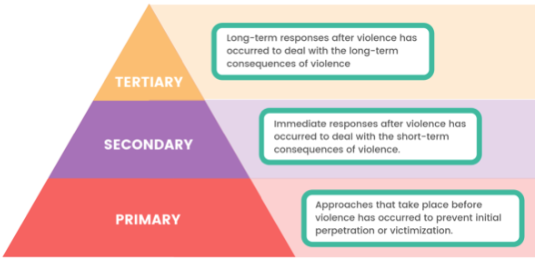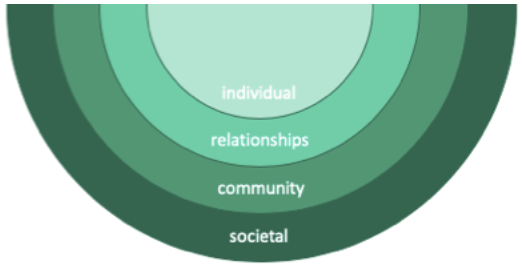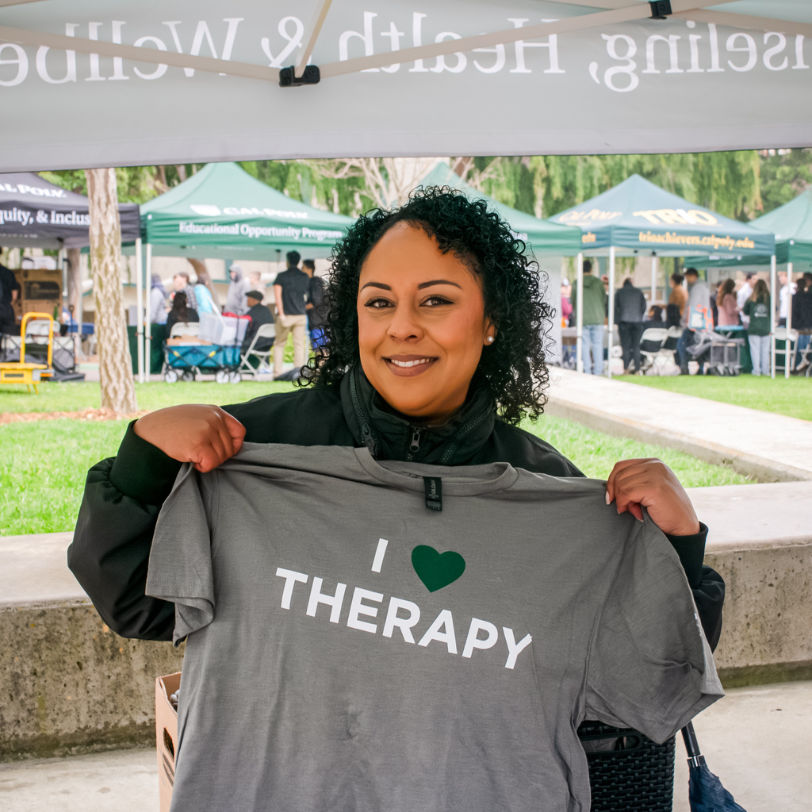Primary Prevention
Although gender- and power-based violence has historically been framed as a “women’s issue,” we recognize that violence affects all of us - and in order to change our culture, we must take a holistic public health approach.

At Safer we take a primary prevention response to violence. We believe that violence is not inevitable, and we have the ability (and responsibility!) to educate ourselves and our communities to prevent harm from occurring. For wrap-around holistic advocacy, we still provide resources in secondary and tertiary prevention, such as crisis counseling and advocacy.

In viewing gender- and power-based violence as a public health issue, we view perpetration and prevention through the spheres of influence model. Having risk factors in your community don't mean you will perpetrate or that it is any more excusable; but they are factors that lead to complicity. These are factors such as strong gender norms, weak social sanctions for perpetrators, and lack of empathy. On the other hand, we have the ability to influence our society in a positive way - we can be empathetic, advocate for more policies to protect survivors, and feel responsibility for our community and peers.

We know that this violence doesn't come out of the blue - it is rooted in a historical & cultural context of supremacy, power & control. The continuum of violence above shows how these attitudes & beliefs at a cultural level allow for violence to occur - we must be active bystanders at all levels for true prevention.
So... what do we do?
There are many ways to get involved in this movement, based on your emotional capacity, energy levels, privilege to leverage, etc. Everyone has a place in prevention - click here for some ideas to get you started.



